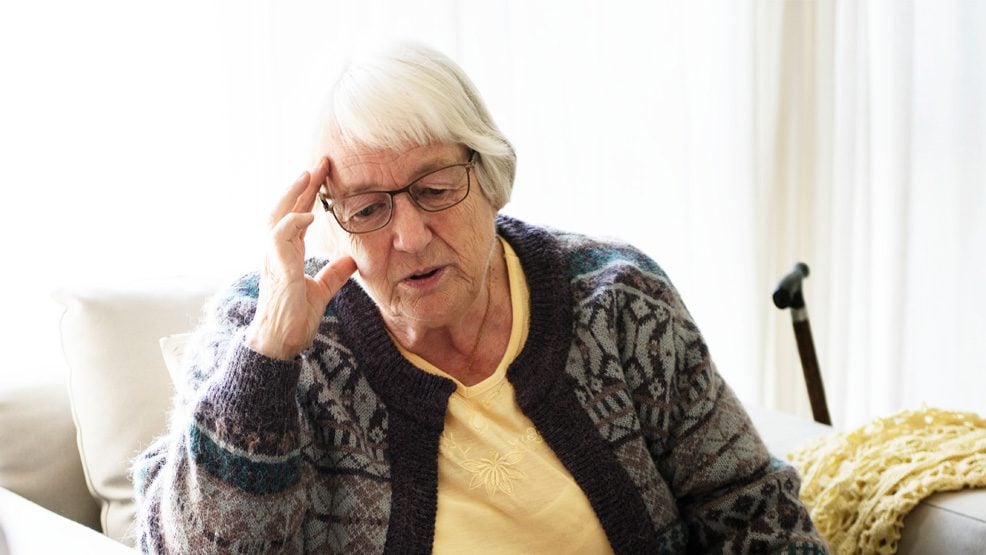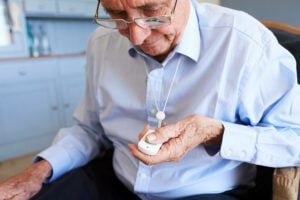What is a memory clinic?
Tags
Living with Dementia
A memory clinic is a specialist centre in which you undergo a series of tests – such as CAT, MRI and SPECT scans. The purpose of a memory clinic is to discover the cause of your memory problems and to provide you with the appropriate support and treatment to help to have a good quality of life.
The suspicion that your elderly relative may be experiencing early symptoms of dementia can cause a great deal of stress and worry. Perhaps you have noticed that they are starting to forget things such as appointments, important dates and events, or maybe they are getting confused about their finances. They may be losing things more frequently than usual and struggling to remember familiar names.
That’s where a memory clinic comes in. Sometimes known as a memory service, it’s somewhere you can go to have any issues around your memory properly investigated by an expert. Those working in memory clinics are specifically trained in understanding conditions such as dementia.
They can carry out certain tests to determine your loved one’s stage of the condition. This will allow them to prescribe certain drugs, recommend certain lifestyle changes or guide you on useful mental exercises.
GP referral to a memory clinic
Dementia can’t be cured, but it can be treated, particularly in its early stages, so a prompt diagnosis is important in order to limit the progression of the disease.
Your first port of call is almost certain to be your loved one’s GP, but unfortunately, the majority of doctors just don’t have the time and resources to enable them to make an accurate diagnosis, leading to delays in diagnosis and the chance that the disease will progress without the necessary treatment.
A firm diagnosis of dementia follows a wide selection of tests which the GP probably has neither the time nor the necessary skills to carry out, so you and your relative are likely to be referred to a memory clinic.
What happens at a memory clinic?
There are memory clinics throughout the UK, offering the services of several different specialists, including psychologists, who deal with mental health issues, geriatricians, who are trained in matters relating to ageing, and nurses with specialist dementia training.
Your loved one will be given a baseline assessment to establish their current memory problems. They will be offered a series of tests to check on their ability to remember facts and retain information, which will give an initial insight into their mental capabilities.
It’s important to stress to your loved one that there is no pressure to perform well in these tests – they are done merely to provide the medical professionals with an insight into your relative’s mental processes so that they can uncover any anomalies which could help with a diagnosis.
Your relative will also be asked to supply blood and urine samples, and they may have to undergo some type of scan. They may be offered a CAT scan, also known as computerised axial tomography, which takes x-ray images of the brain, or an MRI scan, which uses magnetic resonance imaging to show a detailed picture of the brain, which can identify damage caused by dementia.
An EEG uses electroencephalogram imaging to record electrical activity within the brain, whilst a SPECT scan relies on single photon emission computerised tomography to assess blood flow through the brain.
These scans can seem daunting, but they are completely painless. However, they allow medical professionals to easily identify any areas of brain shrinkage or anomalies that indicate a diagnosis of dementia.
What happens after visiting a memory clinic?
Depending on the results of the tests, your relative may be asked to come back in a few months for further testing, or they may receive a diagnosis.
Partners, family members or carers are welcome to attend appointments too, and where dementia has been identified, the health professionals may choose to discuss the diagnosis with someone other than the patient in the first instance, depending on their likely reaction to the news.
Because the memory clinic is staffed with professionals experienced in dementia treatment, they are on hand to offer advice and support and to answer any questions that you or your loved one might have about the diagnosis.
They will undertake regular reviews of any necessary medication and provide in-depth information on the specific condition which has been diagnosed, since dementia can take many different forms, including Alzheimer’s disease, Pick’s disease and Dementia with Lewy Bodies, for example.
The memory clinic will report their findings to your relative’s GP and will provide details of any diagnosis, collaborating over any prescribed treatment plans.
You will be given telephone and contact details to access further information and support services and will receive further appointments to track the progress of the disease so that any medications can be altered as necessary.
Why is a memory clinic better than a GP?
Unlike a GP, the memory clinic can focus specifically on memory issues, with trained and experienced staff who understand the concerns and worries of people with dementia, or those who suspect that they might have it. They can spend time talking over the issues and directing patients to the most appropriate sources of help, such as local community support services.
Trained nursing staff understand the issues surrounding living with dementia and can spend as much time as you need discussing options and provide helpful advice and reassurance.
If necessary, they can direct you to elderly care services in your local area, such as companion care for elderly people who are feeling vulnerable following their diagnosis.
You and your loved one will be offered information on long-term care solutions, giving you plenty of time to research and plan for the later stages of the disease. That might involve care in a nursing home or a live-in carer agency, such as Elder, where they will provide a caregiver experienced in dementia care to move into their home and provide 24/7 support.
Pam Schweitzer, MBE, Reminiscence Expert & Coordinator of the European Reminiscence Network
One of the leading experts in the field of reminiscence therapy for over 30 years, Pam Schweitzer MBE is passionate about the positive effects of this work on older people and those with dementia – focusing on triggering individual memories and the sharing of stories in reminiscence groups.
This article is for informational purposes only and not to be taken as medical advice. For medical advice, always consult your GP.
Read more care guides

How to prepare for a live-in caregiver
Care at home: how to prepare the home for a live-in caregiver A live-in carer can make a massive difference to your loved one’s quality

6 tips for finding the right live-in carer
Finding the right live-in carer is a significant and deeply personal decision, impacting your loved one and the entire family. You’re seeking someone trustworthy, compassionate,

The cost of care – everything you need to know
The true cost of care – everything you need to know Discover the true cost of care and explore your funding options with our care

Understanding autism in older adults
While Autism is usually diagnosed in childhood, an increasing number of older adults are being formally diagnosed in later life. Masking autism symptoms can result

A guide to speaking with a loved one about home care
Why do older adults resist care? A guide to speaking with a loved one about home care Bringing up the topic of care at home

How to choose the right personal alarm for seniors: A comprehensive guide
Personal alarms for elderly Discover how personal alarms work, who they’re best suited to, and how they provide greater peace of mind to older people